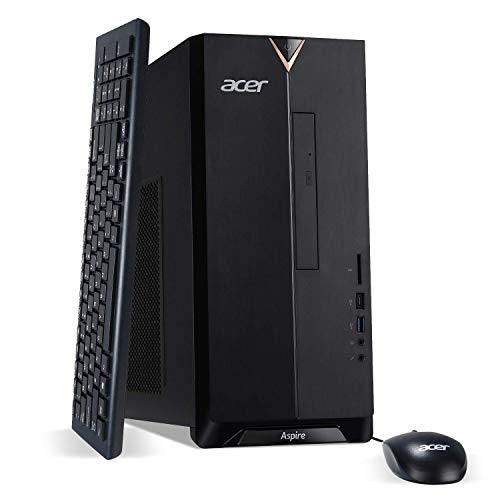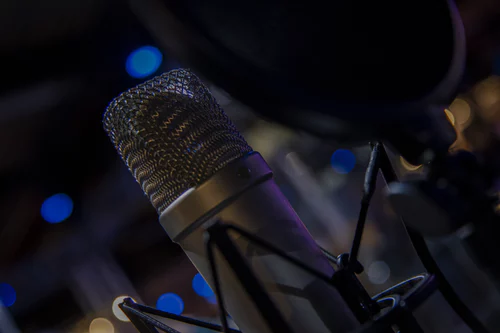Until not very long ago, if you wanted to make studio-quality music, you would have had to look for professional studios.
Home productions were considered best for making workable demos but in the last few years, we have seen computers becoming commonplace and not limited to the studios.
Naturally, this accessibility has made digital music production easy for anyone.
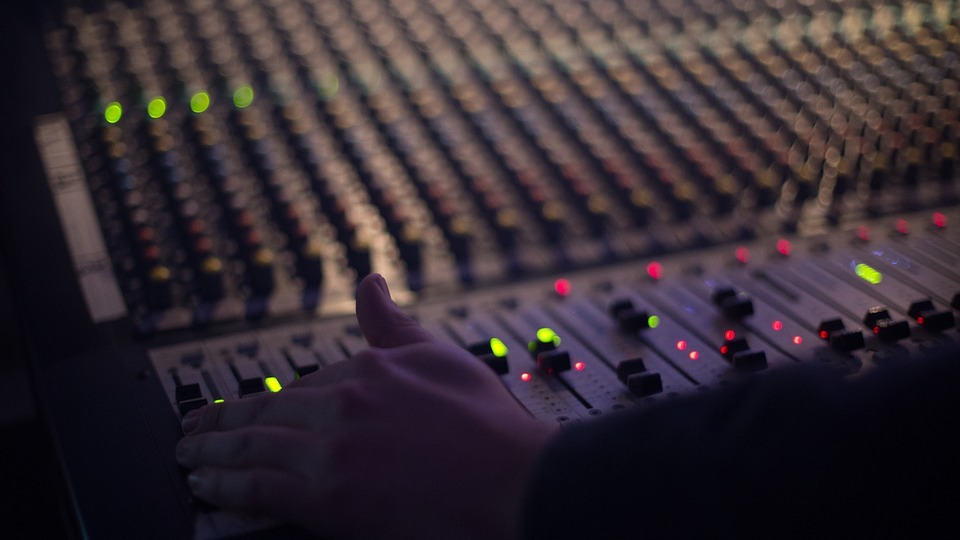
We’re constantly asked by our readers what’s the “best” kind of hardware they should use for music production. What most of them don’t realize is that what is “best” now, could be outdated in a few months.
So, we decided to write a guide that should help the readers get the best value for their money when they are buying computers for music production.
And when we started putting together this guide, the first question that came about was — “Did we use laptops in the beginning? Or was it a computer?”
It then struck us that it was a PC since laptops not so long ago used to be bulky and a burden to carry, not to mention, expensive.
So, which computer should you get? Let us take a moment to consider this in the next section:
Best Mac for Music Production
Macs are a very popular choice for musicians, beatmakers and producers due to their simplicity and the fact that most industry-standard software works seamlessly with them.
Deciding how much power you need is a tough call due to the number of choices out there as well as DAW requirements.
Check out the comparison below on a MacBook Pro and iMac. These are some of the best computers for producing music in 2021.
Best Laptops for Music Producers and DJs
If you’re really looking to get serious about music production and djing, you should really be looking at getting a laptop. The sheer convenience of being able to take your work on the go with you and collaborate with other producers and DJs is essential in this business. Keep in mind that you might need to also purchase extra storage for big sample packs and backups.
You’re investing in your future and business when picking out a laptop for professional recording or djing. We’ve found that these 3 are the most widely mentioned on forums and Reddit.
Best Desktop for Music Production
Having a PC desktop while somewhat bulky and possibly noisy is one of the best budget options you can go for when buying a computer for music production. Desktops are great due to the fact that you can easily upgrade components, will avoid using dongles and maximize storage within the computer.
Don’t overlook getting a tower if you’re starting out with a small budget. Most DAWs will be able to run pretty smoothly on most low-end PCs. Here are some great choices of PC desktops for your recording studio.
Laptops vs. Desktop Computers
This could be a significant decision, depending upon what your needs really are. Naturally, there are some factors to consider:
- Budget: This should be the first consideration. First off, you should really determine if this is the computer you are going to use for at least 2 years. You should also consider if you would need another one in the next 2-3, or even 4 years.
- Portability: How are you going to be using your computer (laptop or PC)? Is that your regular go-to machine? Or are you one of those who are on the road frequently and gigging as well as producing while traveling? This could mean you could be working from a motel room as well as a tour bus. Or do you exclusively record from your home studio?
Budget
It is a well-known fact that laptops usually do not offer a lot of customizability. It is a different story if you have actually managed to ask the local hardware guy to customize your laptop, but there are many limitations to that. In some very rare cases, some laptops may be as good as desktops, but they can be frighteningly expensive.
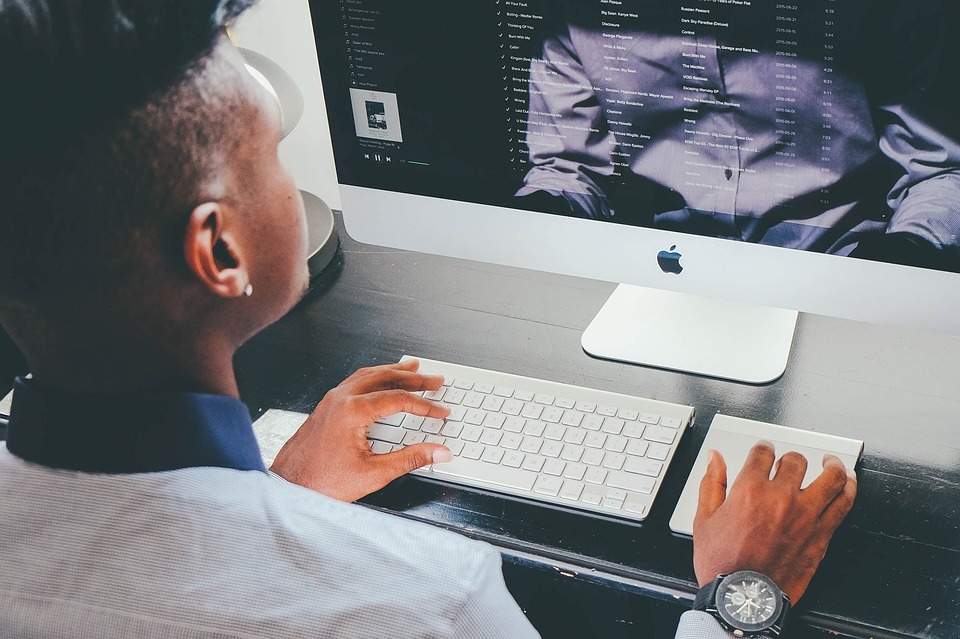
Desktops, on the other hand, offer a high level of customizability. This usually means that you can build one from the ground up, adding and upgrading components as per your requirements. These would include RAM, processing power, video cards, and storage. This is one of the biggest advantages of having a desktop for music production.
If taken care of the upkeep and upgrades, a desktop could last you up to 8 years, compared with around 3-4 years if you use a laptop for the same purpose.
If you are not traveling frequently, a desktop should be the answer for you.
Portability
As I said before, if you are someone who makes their music on the go, a laptop is a preferred choice. But bear in mind that they would never give you the same value-for-money when compared with desktops.
The main reason for this is that laptops are not very upgradeable and not as sturdy when compared with desktops. In our experience, a laptop does not perform as well as a desktop when it comes to heavy work. Sure, you have seen the configuration and were quite impressed by it, but these configurations are often weaker when you compare them with a desktop side by side.
But don’t let these words mislead you, it is entirely up to you to choose flexibility over portability. No matter how powerful the PC is, you can’t lug it around wherever you go.
Mac vs PC
The Mac vs PC debate has been raging on for decades and we are not about to add fuel to this fire. And this debate has spread everywhere, from the geek world to the gaming world, to design and of course, to the music industry.
People may have chosen their camps long ago, but over the last few years, this gap has become smaller and smaller, with both platforms gaining in processing power and efficiency; which, if you are a music producer, is great news because it means smaller export times, better sound quality, more versatility and much more.
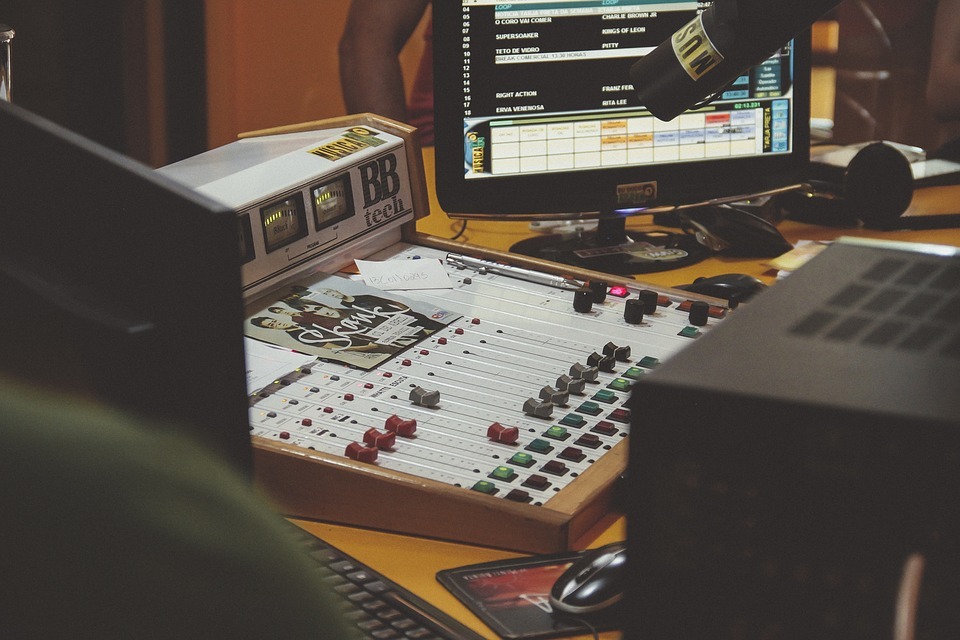
Having said that, the camps still remain because everyone within a specific industry wants to stay in a singular environment when one is considering operating systems.
We are assuming the readers of this article are aware of what we mean by a Mac or a PC before we indulge in this debate over which one is better. In short, we are referring to computers which are made by Apple and run the macOS operating system and PCs, which run on the Windows OS.
Let us compare the two over certain parameters. Is a particular type of computer or operating system better at doing certain things when it comes to music production? Or is it compatible with how things have been done in the past? Let us see:
- Ease of Use: This is one of the most important factors, regardless of the fact if you are a newcomer to music production or a veteran. If you are not aware of the design aesthetics of your computer, you will be grasping at straws. And in this department, Mac computers have an upper hand.
Simply put, a Mac computer is of intuitive design; for example, the touchpad on a MacBook offers great versatility. It is precise and extremely fluid, and it is not uncommon to see newcomers to this platform squeal in delight over the multiple options its offers (especially if you are a music producer).
Naturally, Windows computers have learned from these shortcomings and the new machines are coming up with innovative improvements.
- Software: A fair number of companies design their music software keeping Apple in mind because of the number of users it has. But when it comes to certain things, for example, plugins, you will see that Windows has much more on offer.
On the other hand, if you have a Mac and are looking for plugins, you will have to put in a fair bit of effort and research. This stands true for freebies as well. Besides, since earlier on, a lot of software has been natively known to work better on a PC, such as FL Studio, Pro Tools, Reaper, Cubase and so on. Though, most of them are now available for the Mac as well.
- Hardware: The hardware will vary depending on the model and year of the PC or Mac. We’ll give you an example; the latest Mac computers have done away with the standard USB port and now only come with a USB C port. That means if you want to use USB sticks, you’ll need to get a dongle that supports USB A. They also do not come with a CD or DVD drive. If you are someone who has traditionally stored data on DVDs, this could be a real annoyance.
And this is a sort of win for the PCs for their customizability and adaptability. If you have a PC, swapping hardware is usually not a big deal (unless you are skipping a few generations). Unlike a Mac which would need a special adapter to hook up hardware, PCs tend to be more benign.
- Performance/Power: Traditionally, Mac computers have come preloaded with software for you to start work out of the box. Software such as Garageband is great if you are starting as an amateur producer.
On the other hand, as I have mentioned more than once in this article, PCs tend to be more customizable. If you want to enhance the production experience, all you have to do is simply add or upgrades the components.
Ideal Laptop Specs for Music Production
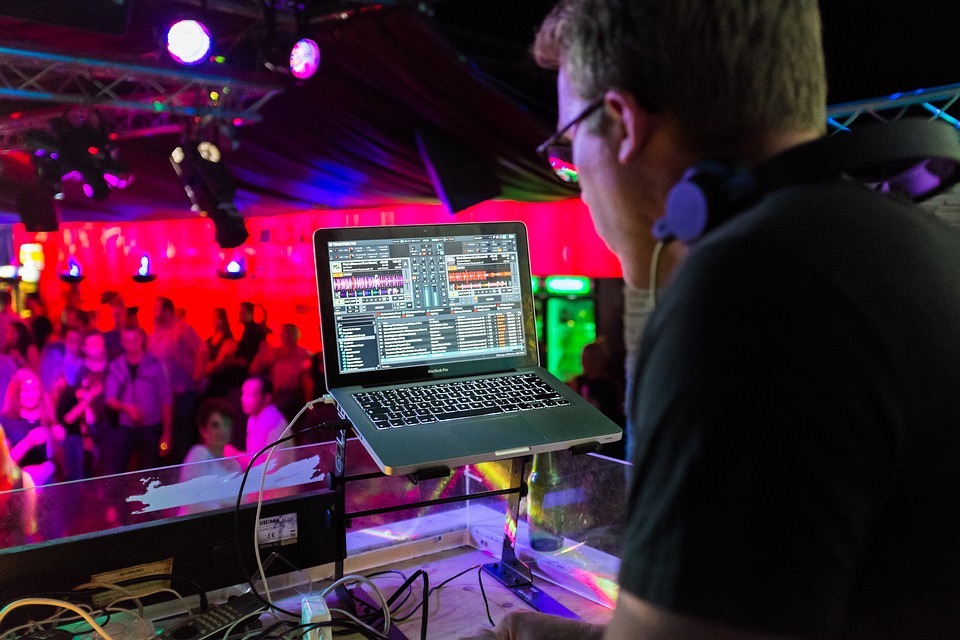
You probably know that all music production specifications cannot be common. Depending upon its complexity and number of tracks along with other requirements, here is a basic guide for you:
- RAM: Someone wisely said that you can never have enough RAM and they were right. While 4GB used to be the minimum standard, the standard these days is 8GB. If you are buying a laptop, make sure that you can upgrade the RAM in the near future and if not make sure you stack it up with enough RAM so that you’re future-proofing yourself for the next 3-4 years at least. Ideally, if your budget allows you, get 16GB or even 32GB of RAM.
- CPU: This will determine how well a particular program will run on your machine. This is the most important specification when you are looking to buy a computer for music production. The more cores it has, the more tasks it can perform at the same time. To a dual-core processor, handling music can be too overwhelming, so a quad-core processor from Intel’s or AMD’s latest generation is recommended.
- Storage Options: There are two kinds of storage options, HDDs (hard disks) or SSDs (solid-state drives). SSDs are a relatively newer tech and work extremely efficiently. It has a longer lifespan, doesn’t heat up like a hard disk and works much faster thanks to the lack of moving parts, unlike a hard disk. All your programs will run much faster on SSDs as compared to HDDs. Get at least 500 GB of disk space on your computer to begin with. You can always add more with external storage.
- Screen Size: Some people find the 17” screen too big, while for some, even the 15” is enormous and prefer the 13” screen when it comes to laptops. In that scenario, it is all about portability, comfort, and ease of use. So you should test these out, keeping in mind the type of digital audio workstation (DAW) you use. When we are talking about an indoor setup, go big, say about 24”.
Mac Laptop Benefits
We have already spoken about the PC vs Mac argument. Let us see why people prefer using Mac laptops while working with music:
- Quality: Apple products have always been known for their build quality and design. The same goes for the operating system, which has gotten even more efficient over the years. Both the hardware and software work seamlessly together.
- DAW: In this case, Logic Pro X, which is considered one of the best software for musicians. If you have been using Garageband (which comes free), graduating to Logic Studio is a breeze.
- Out-Of-The-Box Performance: Unpack any Mac laptop, and it will work straight out of the box, with minimal configuring (date, time, wifi, etc).
- SSD: Most of the new Mac laptops now come equipped with solid-state drives, which means faster performance.
- Mobility: Of late, new Mac laptops that have been produced have been really lightweight and in some cases wafer-thin. All this without compromising on quality. For example, 8GB RAM is now standard.
PC Laptops Benefits
Let us see some benefits of using a PC laptop for music production over a Mac laptop:
- Price: This is the top reason why most of us use a PC laptop for music production since, for a lot of us, the price of a Mac laptop can be prohibitive.
- Customizability: This fact may or may not stand true in the long run, since a lot of PC laptop manufacturers are making it impossible now to upgrade your laptop to your specifications.
- Compatibility: PC laptops can run most DAWs, with the exception of software such as Logic Pro X, which is exclusively for the Mac platform. Whether they do better than the Macs in this department is purely subject to personal experience.
DAW System Requirements
We will talk about it in broad terms since recommending system requirements for any DAW will depend upon your intention.
Depending on the DAW you’re using and your work profile, you could be a mixing/mastering engineer, tracking digitally or recording at high sample rates, your requirements would be different from one another.
Keeping that in mind, we are listing the most important things to consider when you are building your own setup for home recording.
- Processing Power: As we discussed this earlier, you don’t have to break the bank, but a slow processor would mean staring at your screen for a longer period, several coffee breaks and muttering under your breath. Music production takes quite a toll on the computer (PC or Mac), and hence, we would recommend some of the latest Intel processors. Look at the i7 or i9 series from the 7th or 8th gen.
- RAM: The more the better. This is provided you are using a 64-bit operating system with a multi-core processor. Use the specifications we mentioned earlier; the lowest of low you can go is 8GB (not nearly enough) and the standard we would say, DAWs, is 16GB or higher — get 32 gigs of RAM if you can afford it and would like your investment to be worthwhile a few years down the line. Swoop down here to find out more about this aspect.
- Storage: You should get this depending upon your requirement. Hard drives don’t cost very much, and the best part is that there are many other options available, such as external USB drives which are easily available and SSD drives, which are much faster but are expensive. A great idea would be to get an SSD for internal storage and running your software, and then hooking up your machine to external HDDs for storage.
- Display: Since we are not talking about a laptop here, we would suggest going all out and getting a big screen, say about 24”. Alternatively, you can hook up two screens side-by-side to get you tons of working space. After all, you don’t want to be struggling with a bunch of windows while you look for your specific program.
Conclusion
Hopefully, this guide helped you make up your mind about what you want for your home studio. You would also be aware by now what influences your buying decision, whether it is the budget, the portability or something else.
Speaking of which, most of the laptops or computers on the market these days are powerful enough, to begin with; and if you are getting confused over which one to get, just check the four main components that we have discussed in great detail here
We hope you create some sensational music soon!
